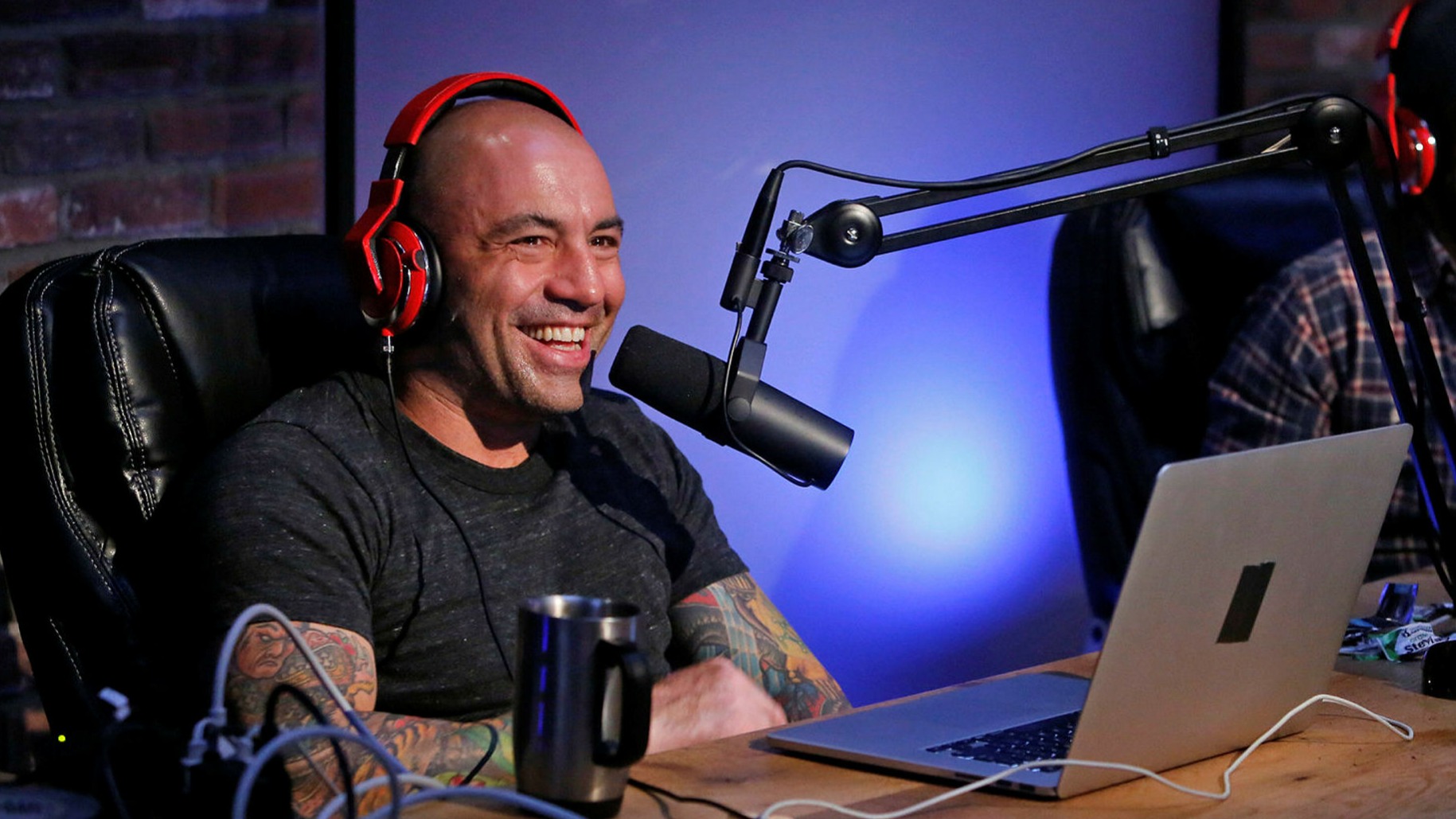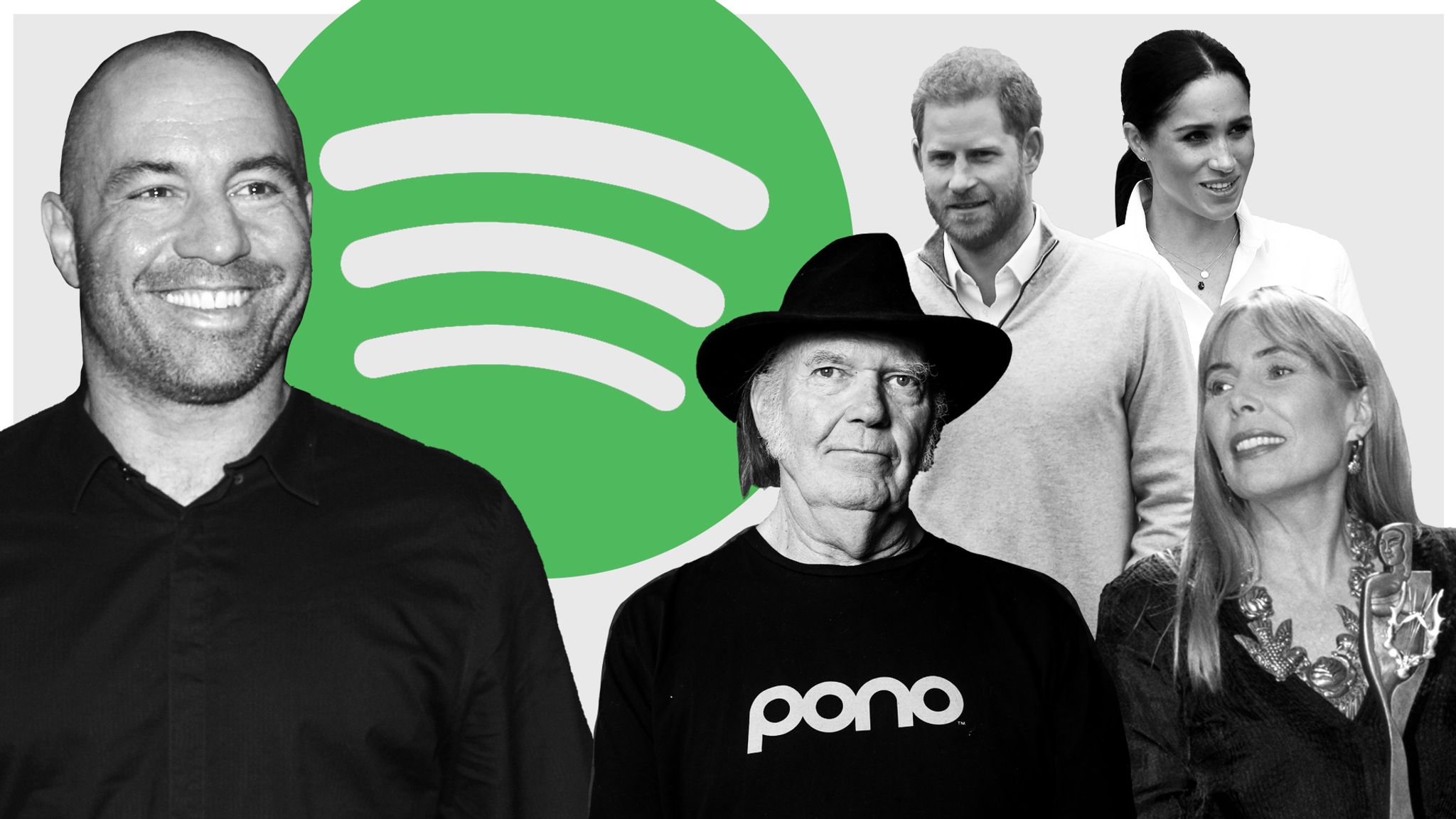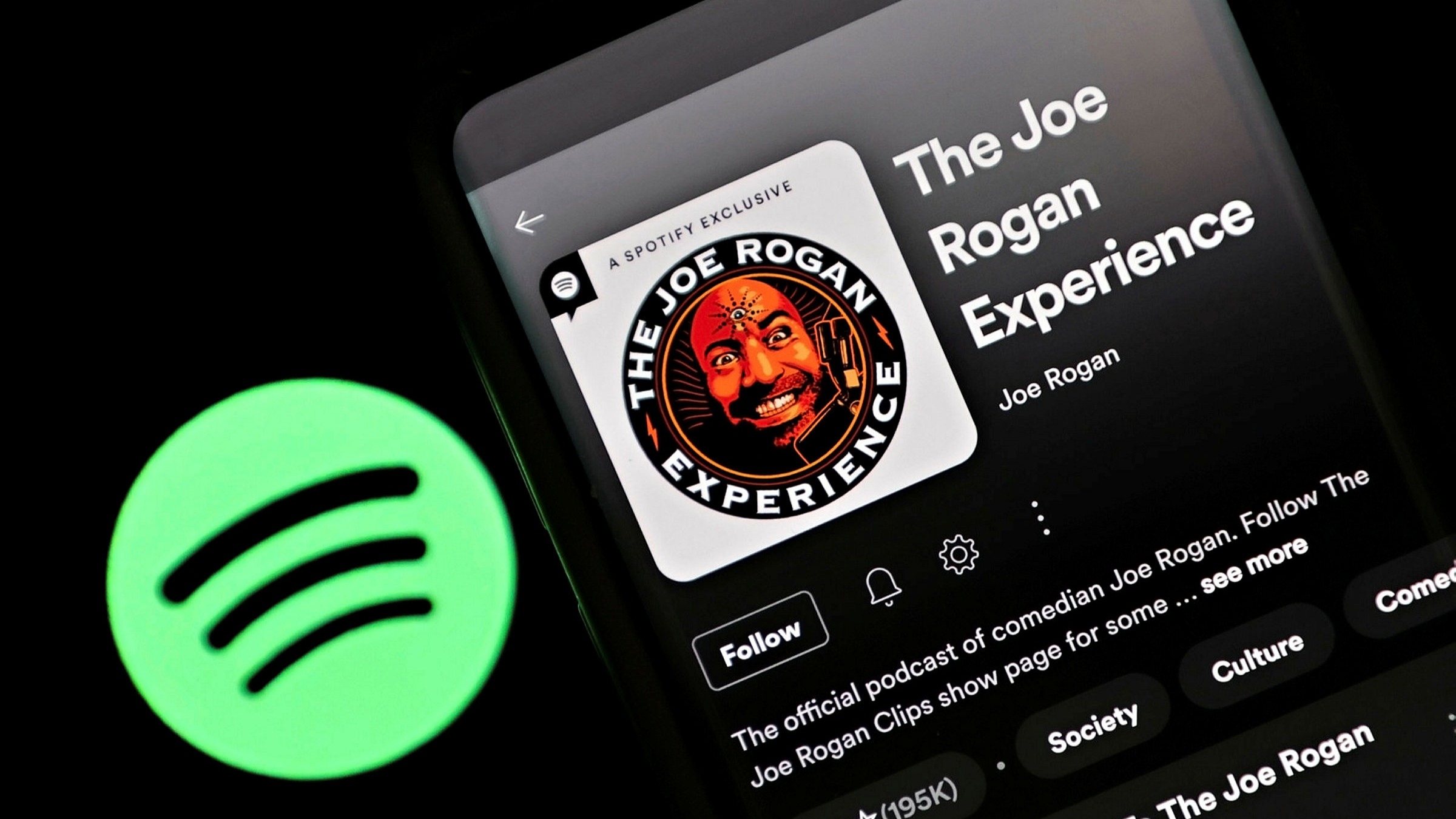Spotify update: Joe Rogan’s episodes are disappearing

Joe Rogan’s episodes are disappearing from Spotify.
On Jan 24, Neil Young found an NPR report that he thought would be a perfect fit for his online newspaper, the Times-Contrarian.
In an open letter published earlier in January, teachers, scientists, and medical professionals signed the letter, who urged Spotify Technology SA to correct information Joe Rogan provided about Covid-19 vaccines on his podcast.
People familiar with his site said that Mr Young typically reposted such stories. He writes about Spotify on his own in his letter, and Joe Rogan or Young can be considered. In a letter to both his record label and management, the 76-year-old activist artist demanded that they remove his music immediately.
Spotify took down Mr Young’s music two days later after Mr Young’s label informed it.
Insiders at Spotify said that in the weeks following Mr Young’s injunction, there wasn’t a real crisis at the company.
Others began to follow in Mr Young’s footsteps. Spotify executives decided they needed to act before the weekend ended and the problem escalated. Five days after the singer’s first volley, they chose to work.
Company Response to the open letter had already been planned before Mr Young’s demand surfaced, he said. “That was my fault.”
In its quest to become the world’s largest audio company, Spotify has received a rude wake-up call from this spat. A tech platform independent of which services it hosted, Spotify began as a tech platform like Facebook and YouTube. Nevertheless, it is now striving to become a media company that distributes its content. The company must make difficult decisions about content, and whether consumers, employees, artists or podcasters like it or not, they can spark heated reactions.
A publisher, Mr Ek, did not want to be categorised as such in the interview. YouTube and Facebook may or may not be tech platforms, he said. The term Spotify has no exact definition, he said.
The company reported 406 million active monthly users this week, an increase of 18% from what it said last year. A large portion of the company’s advertising revenue was generated by podcasting.
Neither Mr Young nor his representative would comment. Responses to contact with Mr Rogan’s representatives were not forthcoming.
The label was not informed of Mr Young’s Jan. 24 letter. According to people familiar with the timeline, it took several hours to notice the change.
The music industry has clashed with Mr Young because of his principles. Pono, his high-definition music player and download service, was developed during the 2010s as a response to his crusade for better digital sound quality. In 2015, he temporarily removed his music from streaming services due to perceived sound quality concerns. Spotify’s sound has been described as “sh*t degraded and neutered” on his website recently, and he has encouraged users to leave the service.
According to Rogan’s open letter, Dr Malone is a virologist who worked on several mRNA vaccines, including Covid-19, but who is now critical of those vaccines. In their letter, the signatories claimed that Rogan’s podcast propagates “baseless conspiracy theories.”
Mr Young expressed the same critique in his letter dated Jan. 24, which he removed the following day when the media began writing about it.
On Jan. 25, Warner Records’ Warner Music Group Corp. label and Mr Young’s management team discussed waiting for Spotify to respond, according to people familiar with the talks. However, Mr Young did not waver.
The music rights holder, Warner, controls how Spotify distributes its music. An artist of his stature will typically have his wishes taken into account by a record company. According to people familiar with the request, Spotify officially requested the removal of his music the next day.
Toward the end of his music’s lifespan, Mr Young wrote on his website: “I sincerely hope that other artist’s and record companies will move off the Spotify platform and stop passing on Spotify’s false information. “He began redirecting fans to places where his music can still be listened to, including Apple Inc.’s Apple Music, Amazon.com Inc.’s Amazon Music and Qobuz, a high-resolution music streaming site.

Spotify issued a written statement on the day Mr Young’s music was taken down, saying: “We want Spotify users to have access to all the music and audio content in the world.” “This entails a great deal of responsibility in regards to the balance between listener safety and content creator freedom.”
“We regret Neil’s decision to remove his music from Spotify but hope to welcome him back soon,” Spotify said in the wake of the Covid-19 outbreak. “We have in place a number of content policies that prevent inappropriate content from appearing on the service.”
During the weekend of Jan. 27 and 28, Spotify’s rivals began tweeting that they supported Mr Young. Sirius XM Holdings Inc revived M. Young’s satellite and streaming radio channels. Executives in the music industry said that labels were contacted by artists and their managers asking for permission to make their music down. When Spotify failed to provide them with an objective response, they began pressing the company to do more.
According to those familiar with the outreach, Mr Ek offered to meet with Mr Young several times this past week, but the artist declined his invitation. A source familiar with the artist’s thinking says that Mr Young wanted to speak with some doctors who signed the original letter to get their reaction to Spotify’s response.
People inside Spotify reported that frustration was rising after Mr Young took action. Several employees were already concerned by the company’s silence following the open letter.
“One Spotify executive said, “This isn’t a big deal until it becomes one,” explained Young’s letter. “Part of Spotify’s proposition is to provide all your audio in one location. If Drake or Taylor Swift pull off, it means the company has a serious problem on its hands.”
A place where employees can openly discuss topics like app updates and snacks available at work isn’t uncommon at Spotify, encouraging an egalitarian culture. Some employees have used the company’s internal message boards to express their concerns since Mr Rogan was added to Spotify in September 2020.
Mr Young, a Warner Music Group artist whose manager also works for Joni Mitchell, quit Spotify on Jan. 28. Several former bandmates David Crosby, Stephen Stills, and Graham Nash issued similar statements following Young’s death, including his former bandmate David Crosby.
Arie said she intended to take down her music and podcast due to Mr Rogan’s remarks about race. Podcasters, including professor Brené Brown, pulled their shows from the platform after tweeting on Jan. 29 that they will not produce content for the service for the time being.
An earlier controversy involving Spotify in 2018 was over its delisting of R&B star R. Kelly and rapper XXXTentacion from playlists and algorithms. Both artists were accused of abuse.
The streaming service’s policy on hate content and abusive behaviour sparked a debate over whether it is right to penalise artists for alleged bad behaviour. The policy received criticism throughout the music industry; some said that only Black men who had not yet committed crimes were targeted. A few weeks later, Spotify ended its policy. When it published its blog post, the company said it wasn’t responsible for regulating artists.
People inside Spotify said that the company has invested in dozens of people for its trust and safety team, plus outside consultants and advisers as part of its quest to become a significant audio player. However, much of this took place behind the scenes, and he noted that there were no open discussions or debates on this issue.
In recent years, Spotify has become more profitable by turning its attention to the podcasting sector to differentiate itself from its competitors. According to a source familiar with the matter, the company spent approximately $100 million on the exclusive rights to host Mr Rogan’s podcast in 2020. The company also reached several other deals.

The trust and safety team of Spotify is responsible for establishing and enforcing content policies. Furthermore, it consults with outside experts specialising in hate speech, extremism, and misinformation, and it invests in the development of algorithms and people to moderate its contents.
Jeremy Erlich, Spotify’s head of music, stepped up calls to artists and labels after the protest became clear that Spotify would need to offer a broader public response. A key figure in Spotify’s podcast expansion has connected with podcasters: Dawn Ostroff, the company’s chief content and advertising executive.
“It’s become clear to me that we need to do more to ensure that our content is balanced and accessible to widely accepted information from the scientific community as we navigate this unprecedented time,” Mr Ek said in a blog post on Sunday..”
Besides making its policies public, which is not altered, Covid-19 created an information hub. A pointer to this health-and-science hub would add to the tag for Covid-19-related content. A Spotify representative reported that the company’s teams worked night and day throughout the weekend to create the advisories, which began rolling out this week.
No vaccine-related episodes were removed from Spotify by Mr Rogan. A person inside Spotify said all attacks had been removed for policy violations before the pandemic, although none of them has been connected to the pandemic.
He expressed his commitment to the concept of open dialogue and an all-creators-are-welcome ethos on his blog. The founder himself disagrees with many users on his service and that “it is essential to me for us not to become a content censorship organisation.”
As with Facebook and YouTube, executives at other platforms have also struggled to balance being open to multiple perspectives while maintaining user safety. In recent years, they have developed comprehensive policies regarding content and built teams to flag any material they consider inappropriate or dangerous.
Regulators and lawmakers have demanded that many tech platforms respond to questions about preventing spreading false information, and users have sometimes been banned or suspended.
In an Instagram video he posted Sunday night, Mr Rogan pledged to be more balanced and knowledgeable about controversial topics. Even though Rogan’s post was his initiative, Spotify employees were relieved to read it. It is a strange responsibility to have this number of viewers and listeners, he said in the video. “I will try to balance it out as much as possible.”
In their opinion, Mr Rogan’s response was genuine because he directly addressed Mr Young, something Spotify’s response entirely lacked.
Since the start of his Spotify deal, Rogan has emphasised that he has complete control over his show through social media and his podcast. In its statement, Spotify claims that it does not produce or edit presentations, does not approve guests or topics, and does not review content before it is released.
Transcripts of Spotify executives’ town-hall-style meeting Wednesday showed they stressed that the company acts more as a distributor than a producer or publisher for Rogan’s show.
The CEO told employees in the meeting that he wanted to ensure that they understood why Spotify signed the deal with Rogan and how effective it’s been for Spotify. He said the content hurt employees and emphasised the importance of understanding Rogan’s role in Spotify’s success.
“During the interview Wednesday, Mr Ek said “The Joe Rogan Experience” had the No. 1 rank in 93 markets. In 2021, Mr Rogan’s podcast had the No. 1 rank in more than 30 markets, including the United States, said a person familiar with the matter. Because of his move to Spotify in September 2020, this person said that Joe Rogan’s listeners grew by 75% between that time and December 2021.
Spotify has said that listeners of Mr Rogan’s show are extremely engaged-they return to the platform more often to listen and tend to listen to other content besides his show, the company says. Edison Research, audio data provider, says Mr Rogan’s podcast has been crucial in making Spotify the top podcast platform in the United States.
“In being a platform, there is undoubtedly a lot of disagreement, a lot of things that might even be offensive for a lot of people,” Mr Ek said in the interview..”
We live in a fascinating time. Technology brings new ethical problems with it with every advance. Choosing what to consume and how to consume it ethically has become increasingly complex over the years. Economics and ethics are not the only ones affected by these issues, but all consumers looking to take advantage of the free market.

It’s easy to see how this has been demonstrated by Joe Rogan’s showdown with Neil Young & Joni Mitchell. Rogan has crossed the line between morally acceptable and immoral. He has rattled disinformation, and he is unapologetically continuing to do so. Rogan has become an enemy of the world, but a fascinating issue has also emerged from this crisis.
The increasing complexity of forces is threatening capitalism and free markets. Despite climate change further weakening this dynamic, none of these is considered.
The issue is that capitalism and the free market are becoming increasingly untenable due to the increasing complexity of forces at play.
Over 100 episodes of ‘Joe Rogan Experience’ deleted from Spotify
Also, the service may not be completed yet.
When platforms like Facebook, Instagram, and Spotify make trillions of dollars and simultaneously protect free speech, how do they handle both? When these platforms make money hand over fist, why do they keep harvesting your data unabated? This question has yet to be answered, and we must address it urgently.
Spotify does a great job answering this question. According to them, markets should determine whether it is right or wrong whether these questions are answered. In their view, they are neutral in the information and decision-making process. What company pays Joe Rogan advances of $100 million? I doubt it.
When the financial imperative for growth conflicts with the disinformation ecosystem, we must have some challenging discussions. Take, for instance, the case of Facebook and Spotify, which host a large distribution reach unprecedented in the history of humanity and are rewarded with the windfall of capitalism. In what ways should we manage such a delicate balance?
It cannot be solved ostensibly. Had it been possible, the problem would already have been resolved.
Historically, people have been allowed to choose their paths, but this doesn’t work. There is no doubt that people in free democracies like the US and Europe cannot cope with the evils of groupthink.
Adding notification warnings to Rogan’s podcast is a virtue signal from Facebook and Spotify. But these are just virtue signals, and it is infringing on an existential crisis for corporations since it is all about their bottom line. As soon as Joe Rogan apologised following the uproar, Spotify’s share price rebounded. Do you see what is going on here?
Spotify wants Joe Rogan. He is the perfect fit for them. It’s no wonder he’s so popular. At the moment, society does not encourage critical thinking, and it is clear that unfiltered discussions are needed.
It faces a more formidable opponent because information channels are complex and virulent. Hence, the decisions can be made by everyone. People are dying because of vaccines, so it’s not clear why the wrong information in the wrong hands can cause such harm, but it’s proved time and time again.

Corporate America is facing an existential crisis regarding its bottom line – so it’s all about what’s good for them.
Two hundred seventy scientists sign a petition complaining about Rogan’s disinformation website, allowing a sinkhole to open up.
Does Spotify handle what it does when Neil Young, Joni Mitchell, and Brené Brown, some of the biggest names in music and publishing, remove their content from platforms due to conscience issues? What happens? Which one loses? In addition, some artists do not technically own their music and thus cannot remove it.
There is no doubt that Daniel Ek, CEO of Spotify, is having this discussion somewhere in a remote boardroom. They want to know how to balance free-market capitalism’s beauty with technology’s increasing destructiveness.
Edited and published by Ashlyn Joy




